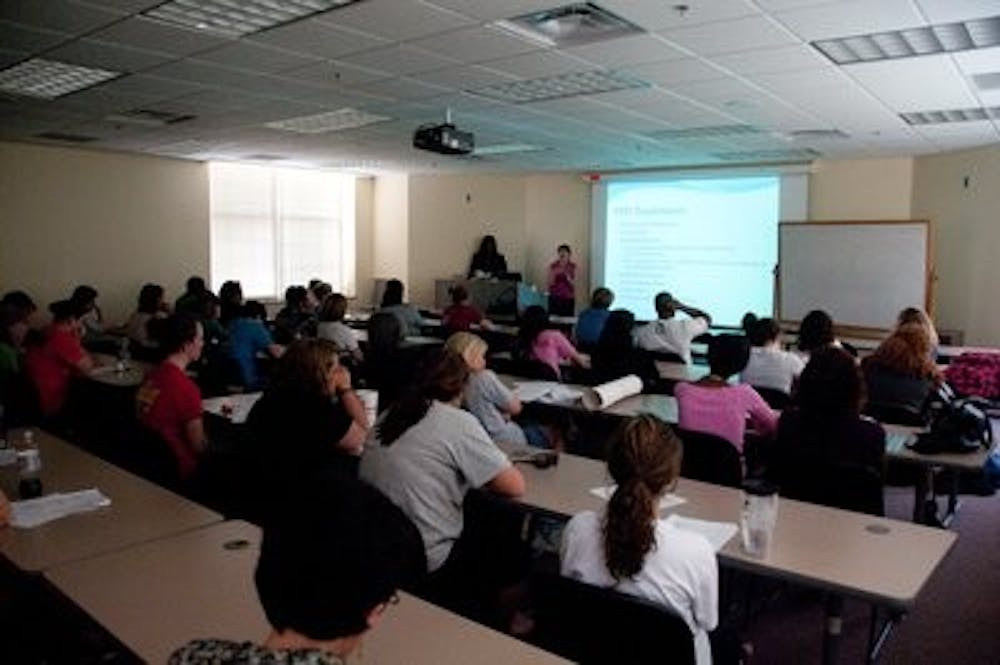"I feel lonely, sad and don't have the energy to get things done. Sometimes I don't even want to hold my baby. If this is supposed to be the happiest time of my life, why does everything feel so wrong?"
This story from a mother as reported by the U.S. Department of Health and Human Services, and millions others like it, were the focus of the annual speaking engagement for Auburn University's Women's Studies Program.
"Alabama's Women with Children Age One and Below: Making a Way in Hard Times" was held in Thach Hall Monday afternoon.
"Lee County has the highest poverty rate among females in Alabama," said Denise Davis-Maye, assistant professor of sociology. "This is not something to be proud of."
Davis-Maye and Carole Zugazaga, also an assistant professor of sociology, lectured about their work from 2007-2008 regarding Alabama women in poverty with children under one year.
Their focus was on Postpartum Depression (PPD), a condition that affects women up to one year after child birth.
The two sought to look at PPD, which often is missed in mothers, and propose ways to streamline diagnosis.
Both women work for the Alabama Women's Commission, which submits an annual report to the governor about the state of women in Alabama.
"We know that numbers are important," Davis-Maye said, "but the numbers don't speak to the experience. We wanted to know what those were."
Thus, Davis-Maye and Zugazaga took numbers into account, but their research was built around discussions with focus groups that studied a range of participants.
They met with obstetricians, gynecologists, nurses and mothers to get a diversity of opinion and experience on the issue.
Davis-Maye said their findings show isolated focus groups, that screening for PPD is largely "informal" and inconsistent on a case by case basis.
"In rural counties," Zugazaga said, "care providers often identified a lack of mental care."
The doctors from the focus groups feel that pediatricians need to be trained to identify PPD in the new mothers.
The doctors said a mother only sees her general practitioner roughly once during the first year of her baby's birth.
"Pediatricians are the way to go," Zugazaga said. "They see the baby and the mom seven to nine times in the first year."
Pediatricians have the ability to recommend the proper course of care.
"If a mother is not taking her child to the pediatrician, and another relative is," Davis-Maye said, "this is a concern."
While identifying problems on a small scale can be helpful, Zugazaga pointed out "we can't take it and generalize it."
Ruth Crocker, director of the Women's Studies program at Auburn, said she wondered how the newly enacted health care law would affect women and PPD.
Davis-Maye noted their numbers from Medicaid, stated 46 percent of births in the state are paid.
It will take several years to see how new patients set to be added in the Medicaid expansion will affect the care of new mothers suffering from PPD.
Do you like this story? The Plainsman doesn't accept money from tuition or student fees, and we don't charge a subscription fee. But you can donate to support The Plainsman.





